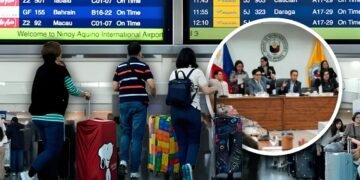President Bongbong Marcos highlighted the Philippines’ readiness to expand its global partnerships in science and technology during the International Atomic Energy Agency (IAEA) International High-Level Forum on Nuclear Technology for Controlling Plastic Pollution, held in Pasay City on November 25 and 26.
Speaking at the forum’s opening ceremony, Marcos emphasized that scientific progress depends on collaboration. He said the Philippines is prepared to strengthen networks that connect regulators, scientists, investors, and community stakeholders across borders.
“Science does not progress in isolation. It advances through networks of regulators, scientists, investors, and community stakeholders. The Philippines is committed to building such networks, locally and across all borders,” he said.
Marcos noted that the world is undergoing a major technological shift, describing it as one as consequential as the industrial revolution. He said leaders must not only adopt new technologies but also ensure they align with human well-being, ethical standards, environmental integrity, and sustainable growth.
“The world is undergoing a technological shift as consequential as the industrial revolution. The leaders of this century must not only adopt new technologies, they must ensure that these technologies are aligned with human well-being, with ethical standards, with environmental integrity, and with sustainable growth,” he added.
The two-day forum was organized by the IAEA in partnership with the Department of Foreign Affairs, the Department of Science and Technology, and the DOST – Philippine Nuclear Research Institute. It underscored the Philippines’ role as an active partner in advancing nuclear and radiation technologies for science-based solutions to global challenges.
The event’s agenda included applications of radiation technologies for transforming plastic waste into durable materials, improvements in microplastic detection to support coastal and marine policy, and strengthening partnerships among governments, industries, and innovators.
The IAEA, established in 1957 and based in Vienna, Austria, leads international cooperation on nuclear science, safety, and security under the motto “Atoms for Peace and Development.” The Philippines has been a member since 1958 and was elected to the IAEA Board of Governors for 2025 to 2027.












